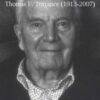Against the God of classical Calvinism and Arminianism From the For-ness of God for the World in Christ
The God of classical Calvinism and Arminianism is the same God, in the sense that their respective doctrines of God find resource in what Richard Muller identifies as ‘Christian Aristotelianism.’ How the Christian thinks of God will determine all else following, theologically. Since the actus purus (‘pure being’) god of Aristotle stands structurally and materially behind the way that Calvinism and Arminianism generally conceive of a God-world relation, what happens is that they must construct a system wherein this God remains untouched by said creation/world. In this effort, said systems have come to think of this God-world relation through a…
June/July Updates: U.N. and State Edition
Following are updates shared from submissions of the Lutheran Office for World Community and state public policy offices (sppos) in the ELCA Advocacy Network this month. Full list and map of sppos available. U.N. | CALIFORNIA | COLORADO | MINNESOTA | PENNSYLVANIA | WASHINGTON | WISCONSIN Lutheran Office for World Community (LOWC), United Nations, New York, N.Y. – ELCA.org/lowc Christine Mangale, Director The Lutheran Office for World Community(LOWC) hosted a delegation of Lutherans as they engaged in the United Nations Permanent Forum on People of African Descent (UNPFPAD) in its second session at the United Nations. This year…
For What Shall We Pray?
“For What Shall We Pray?” is a weekly post inviting individuals, groups, and congregations to lift up our world in prayer. This resource is prepared by a variety of leaders in the ELCA and includes prayer prompts, upcoming events and observances, and prayer suggestions from existing denominational worship materials. You are encouraged to use these resources as a starting point, and to adapt and add other concerns from your local context. More information about this resource can be found here. Prayer prompts: For rescue, recovery, and rebuilding following flooding in Vermont and other parts of New England… For all…
The Relationship of Natural Science to Theological Science in the Thought of TF Torrance
Here is some TF Torrance on the way he thinks the natural sciences and theological science might relate; might even complement each other from their own distinctive verities. . . . theological science and natural science have their own proper and distinctive objectives to pursue, but their work inevitably overlaps, for they both respect and operate through the same rational structures of space and time, while each develops special modes of investigation, rationality, and verification in accordance with the nature and the direction of its distinctive field. But since each of them is the kind of thing it is as…
For What Shall We Pray?
“For What Shall We Pray?” is a weekly post inviting individuals, groups, and congregations to lift up our world in prayer. This resource is prepared by a variety of leaders in the ELCA and includes prayer prompts, upcoming events and observances, and prayer suggestions from existing denominational worship materials. You are encouraged to use these resources as a starting point, and to adapt and add other concerns from your local context. More information about this resource can be found here. Prayer prompts: For peace in Palestine, Ukraine, Yemen, and Syria… For all victims of gun violence, especially in Philadelphia,…
The Blog Just Surpassed the Million Hits Mark
I just noticed that my blog just went over a million hits. Thank you to all my readers and lurkers for making this blog what it is. I started blogging full time in 2005, and in the first four years of my blogging I foolishly moved around from url to url, to this new blog and that one. I eventually stuck with this one starting in 2009, and it has remained a place of refuge for me; in regard to being able to unload my thoughts in written form. I plan on blogging until the Lord returns, or He takes…
Fall Climate Summit Equips Young Adults for Advocacy
Young adults understand that gridlock and partisanship are some of the biggest barriers to progress in our world. One particular area of concern that needs action, and quickly, is the looming climate crisis. Inaction poses grave danger to present and future generations. Since its founding, the ELCA has used social teaching documents as tools for speaking in and to society, and with each other about society. These teachings result from expansive consensus building processes and intentional conversations with people from many points of view and lived experiences. As we live into our sacred responsibility to care for and keep…
‘Once he doubts himself, the abyss yawns’: The Clash of the Gospel with the Enlightened
It is true that on the Deist view, God can also help us in another way. The very contemplation of his goodness in his works inspires us, and energizes us to do his will. Thus as the calm and most extensive determination of the soul towards the universal happiness can have no other centre of rest and joy than the original independent omnipotent Goodness; so without the knowledge of it, and the most ardent love and resignation to it, the soul cannot attain to its most stable and highest perfection and excellence. [Frances Hutcheson, A System of Moral Philosophy, p. 217]…
For What Shall We Pray?
“For What Shall We Pray?” is a weekly post inviting individuals, groups, and congregations to lift up our world in prayer. This resource is prepared by a variety of leaders in the ELCA and includes prayer prompts, upcoming events and observances, and prayer suggestions from existing denominational worship materials. You are encouraged to use these resources as a starting point, and to adapt and add other concerns from your local context. More information about this resource can be found here. Prayer prompts: For all experiencing the effects of smoke, air pollution, and poor air quality… For cleanup and recovery…
Religion as the Tower of Babel
“Human righteousness, in whatever form it is found, is a Tower of Babel.” “Religion—and Barth is here speaking pre-eminently of Christianity—is at its heart, an exercise in self-delusion.” -Bruce McCormack, on Barth’s theology[1] This is hard teaching, who wants to hear it? The first clause (above) conditions the second in Barth’s theology. He is referring to the role that human subjectivity plays in the construction of religion. We create expressions, settings, bells and whistles, verbiage, pews, cathedrals, flying buttresses, smiles (even while in agony), so on and so forth. In the end, do any of these things bring us…









